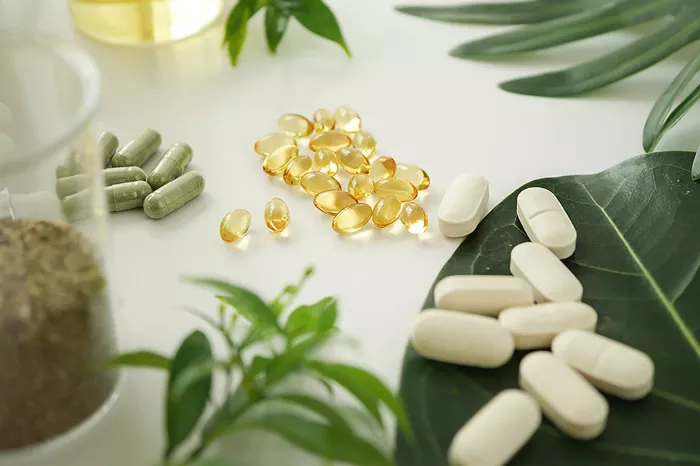A new study published in Cell Reports Medicine has revealed that Vitamin E can significantly improve liver health in patients with Metabolic Dysfunction-Associated Steatohepatitis (MASH). Researchers tested the safety and effectiveness of 300 mg of Vitamin E in improving liver histology and biochemical markers in MASH patients.
Metabolic Dysfunction-Associated Steatotic Liver Disease (MASLD), affecting nearly 30% of the global population, is a growing concern due to its potential to develop into MASH, a progressive form that leads to serious liver damage. Despite lifestyle changes, effective pharmacological treatments for MASH are limited. Although resmetirom, a recently approved thyroid hormone receptor-β selective agonist, offers some hope for moderate-to-advanced MASH, there is still an urgent need for additional treatments. Vitamin E, a natural antioxidant, has shown potential in addressing liver inflammation, but its optimal dosage and long-term safety profile remain unclear.
This study aimed to test the effectiveness of 300 mg of Vitamin E in treating MASH. It was a multi-center, randomized, placebo-controlled trial involving 124 participants across 14 clinical centers in China. Participants were randomly assigned to either the Vitamin E group or a placebo group for 96 weeks. Throughout the trial, all participants followed personalized diet and exercise recommendations. Liver biopsies were conducted before and after treatment, and several biochemical markers, including liver enzymes and inflammatory markers, were regularly assessed.
The study found that 29.3% of participants in the Vitamin E group experienced significant histological improvement, compared to just 14.1% in the placebo group. There was also a notable improvement in liver stiffness measured through FibroScan, indicating potential long-term benefits. Furthermore, liver enzyme levels in the Vitamin E group showed significant reductions: ALT levels decreased by 20%, and AST levels decreased by 18%. Pro-inflammatory cytokines, including IL-6, were also reduced in the treatment group.
Vitamin E was well tolerated throughout the study, with no serious safety concerns. There were no reports of prostate cancer, cardiovascular events, or hemorrhagic strokes, which had previously been concerns related to high-dose Vitamin E. The most common side effects were mild gastrointestinal symptoms, which were seen in a small percentage of participants.
Exploratory analyses revealed improvements in metabolic parameters like insulin resistance, but no significant changes in lipid profiles or BMI. Genetic analysis suggested that Vitamin E may work differently based on individual genetic factors, particularly in relation to oxidative stress.
The study provides strong evidence that Vitamin E can improve liver health in MASH patients by reducing liver inflammation and improving biochemical markers. While fibrosis regression did not reach statistical significance, the results suggest that Vitamin E could become a valuable treatment option for MASH. Furthermore, the treatment was safe and well tolerated, making it a promising alternative to current therapies. This finding could have a significant impact on global liver health and help reduce the incidence of liver-related complications, such as cirrhosis and liver cancer.
Read more:
- Carnivore Diet and Kidney Stones: Health Risks and Concerns Raised in Case Study
- Do Prenatal Antibiotics Affect Breast Milk Immunity and Infant Health?
- Opioid Settlement Funds Spent on Ice Rink Spark Debate Over Effective Use in Addiction Crisis


